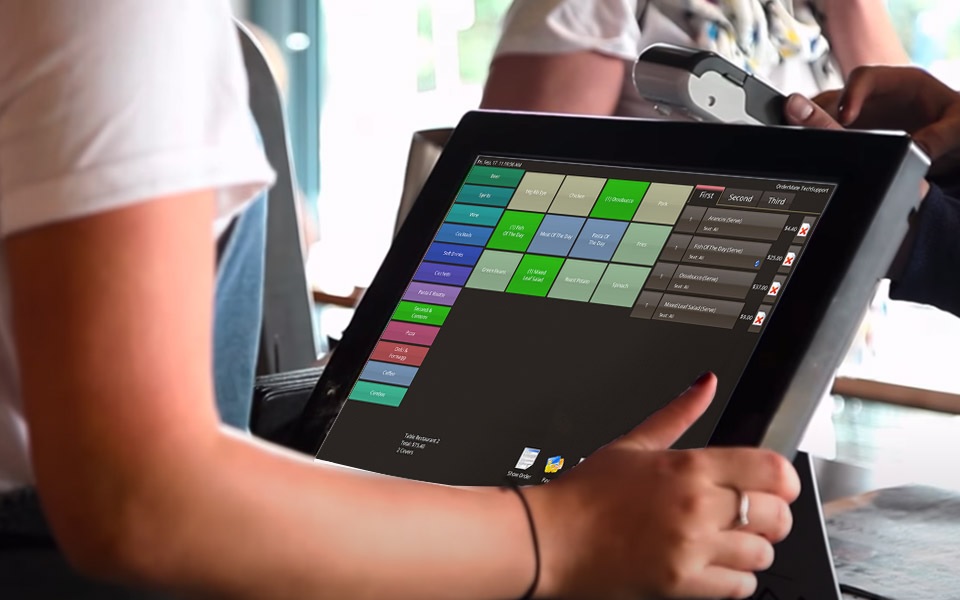In today’s fast-paced business environment, where every transaction counts, the Point of Sale (POS) system you choose can make or break the customer experience. However, navigating the maze of options available can be overwhelming. From touchscreen and traditional POS systems to mobile solutions, each offers a unique blend of features, advantages, and challenges.
To shed light on this crucial decision, we’ll delve into the pros and cons of these three dominant types of POS systems. This comprehensive review will provide invaluable insights to help you make an informed choice for your business needs.
Touchscreen POS Systems
Pros:
- User-Friendly Interface: Touchscreen POS systems generally offer intuitive interfaces that require minimal training, enabling quicker and more efficient transactions.
- Speed and Efficiency: With just a touch, you can complete actions that may require multiple steps on a traditional POS, significantly speeding up customer interactions.
- Robust Features: Many touchscreen POS systems come with a comprehensive set of features such as inventory tracking, customer management, and advanced reporting, all accessible from the same screen.
- Scalability: As your business grows, you can effortlessly add more functionalities and modules.
- Modern Appeal: The aesthetic and tech-savvy allure of touchscreen POS systems can enhance your establishment’s image.
Cons:
- Cost: High-end touchscreen POS systems can be quite expensive, both for initial purchase and maintenance.
- Vulnerability: These systems can be susceptible to smudging and screen damage, affecting their performance over time.
- Power Dependency: Most touchscreen systems rely heavily on electricity, making them less ideal in areas prone to power outages.
Traditional POS Systems
Pros:
- Durability: Traditional POS systems are generally more durable and can withstand tough conditions, including high-volume usage.
- Lower Cost: These systems are usually less expensive upfront and have lower maintenance costs compared to their touchscreen counterparts.
- Less Complex: Fewer features mean fewer things can go wrong, making these systems easier to troubleshoot.
Cons:
- Limited Features: You may miss out on advanced functionalities such as real-time inventory tracking or customer relationship management.
- Reduced Speed: Transactions generally take longer because users have to navigate through more steps.
- Aesthetic Appeal: Traditional POS systems may lack the modern, sleek look that many businesses desire.
Mobile POS Systems
Pros:
- Portability: This is the epitome of on-the-go transactions – employees can take orders, process payments, and check inventory from anywhere in the store.
- Affordability: Most mobile POS systems are affordable and require just a tablet or a smartphone to operate.
- Flexibility: Ideal for pop-up shops, food trucks, or any business that requires a flexible setup.
Cons:
- Battery Life: These systems rely on battery-powered devices that can run out during a busy shift.
- Internet Dependency: Most mobile POS solutions require a stable internet connection, which could be problematic in certain locations.
- Security Concerns: Handling transactions over a mobile device can pose security risks if not adequately protected.
A One-Stop Solution: Bepoz POS in Australia
For businesses operating in Australia seeking a robust and adaptable POS system, Bepoz POS in Australia offers a versatile range of solutions tailored to your specific needs. Whether you’re a restaurant, retail store, or a hotel, Bepoz provides scalable options that combine the best features of touchscreen, traditional, and mobile systems.
Final Thoughts
The POS system you choose has a direct impact on your operations, customer satisfaction, and ultimately, your bottom line. By understanding the pros and cons of touchscreen, traditional, and mobile POS systems, you can make an educated decision that aligns with your business goals.
Choosing the right POS is not merely a matter of cost, but a long-term investment in the efficiency and effectiveness of your business operations – make your choice wisely.







